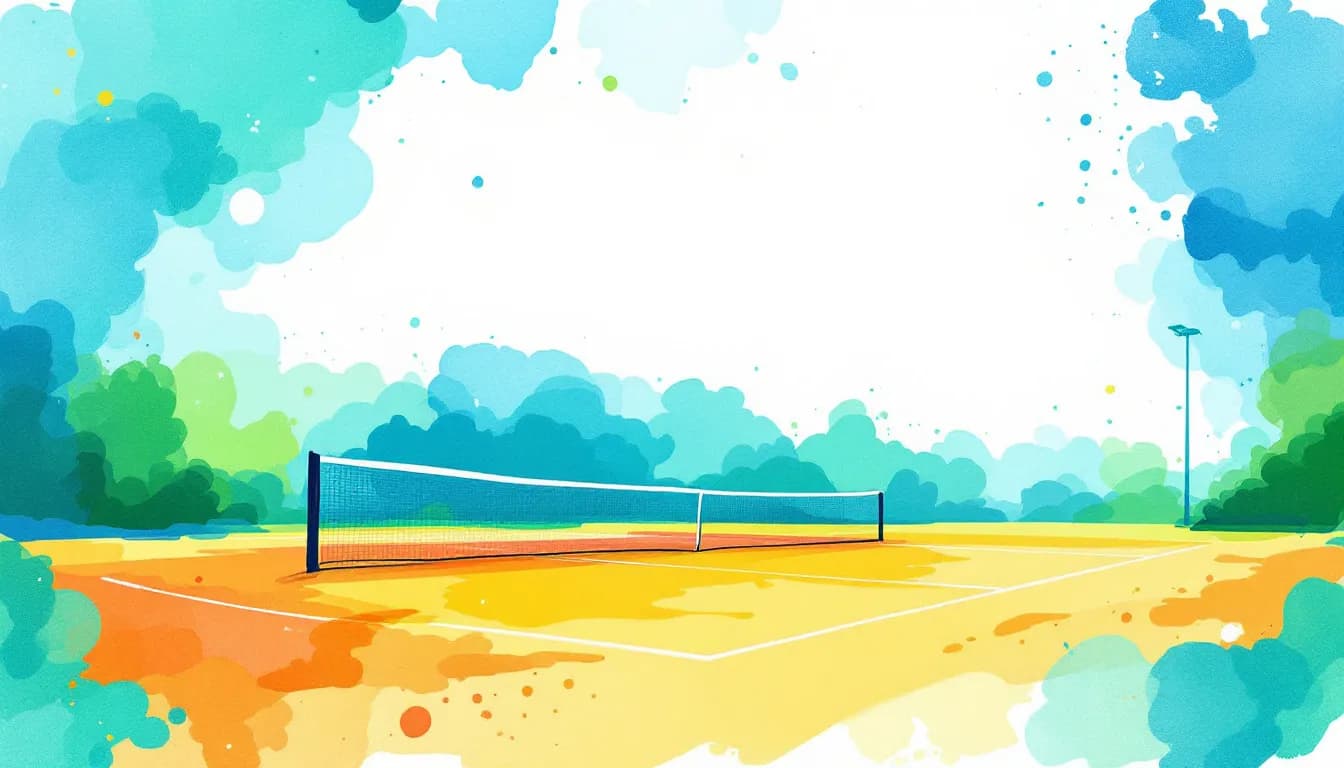The debate over fair revenue distribution in professional tennis has once again taken center stage, sparked by a LinkedIn post from renowned coach Patrick Mouratoglou and a pointed response from former Wimbledon champion Michael Stich. Mouratoglou, a vocal advocate for players’ rights and a supporter of the Professional Tennis Players Association (PTPA), used his platform to highlight the inequities in the sport’s financial structure, while Stich countered with a perspective shaped by his experiences as both a former player and a tournament promoter.
Mouratoglou’s Call for Change
In his LinkedIn post, Mouratoglou addressed what he sees as a fundamental flaw in tennis: despite generating billions globally, the sport fails to adequately support many of its athletes. He pointed to the PTPA’s recent legal action as a catalyst for exposing this issue, asking, “How can a global sport generating billions still leave so many of its athletes struggling to make a living?”
Mouratoglou argued that only about 100 men and 100 women on tour earn enough to sustain themselves consistently. For players ranked around 200—still elite athletes by any measure—the financial reality is bleak, with many losing money just to compete. “That’s not sustainable,” he wrote, asserting that in a sport as commercially powerful as tennis, the top 500 players in both men’s and women’s singles should be able to make a living.
He identified the revenue split as a key problem, noting that players currently receive just 17% of tennis’s total revenue, compared to 30% to 50% in other major sports. However, Mouratoglou emphasized that the issue isn’t solely about increasing players’ overall share—it’s about how that money is distributed. The gap between top stars and those ranked between 100 and 500 is “massive,” he said, arguing that these lower-ranked players, who dedicate their lives to the sport, deserve more than mere survival. “This isn’t about taking from the top players,” he clarified, “it’s about creating a healthier, more sustainable ecosystem for the sport as a whole.”
Stich’s Rebuttal: A Player-Driven Solution?
Michael Stich, a former world No. 2 and 1991 Wimbledon champion, responded directly to Mouratoglou, offering a mix of agreement and sharp critique. Drawing from his time on the ATP Players Board in the 1990s, Stich acknowledged the long-standing fight for a fairer share of revenue, calling it “a constant process over the last 50 years.” However, he pointed out that today’s players are earning more than ever before, with prize money for top singles and doubles players reaching unprecedented levels.
Stich’s perspective shifted as he challenged Mouratoglou’s framing. He argued that if lower-ranked players are to receive more support, the funds should come from the top players themselves, not the broader system. “It has to come from those players to support the rest as you write. They have to give,” he stated. As a promoter of the Hamburg tournament, Stich offered an insider’s view, claiming that many tournaments struggle to turn a profit and are driven more by passion for the sport than financial gain.
He took particular issue with top players demanding exorbitant appearance fees, or “guarantees,” which he believes strain tournament budgets and limit prize money growth. “Start by having a limit for guarantees,” Stich suggested, proposing that this could free up resources to raise prize money more broadly. He criticized modern players for wanting “more money, less obligations to play, no commitment to tournaments,” urging them to recognize promoters as valuable partners who “give them jobs.”
Stich also expressed dismay at the PTPA’s legal action, calling it a move that “is hurting the sport.” Reflecting on his own era, he noted that discussions between players and tournaments were virtually nonexistent, suggesting that today’s tensions stem from mismatched expectations.
A Divide in Vision
The exchange between Mouratoglou and Stich reveals a deeper divide in how tennis stakeholders view the path to financial equity. Mouratoglou advocates for systemic reform, emphasizing a fairer revenue split and broader distribution to support the sport’s middle and lower tiers. Stich, while sympathetic to some of these concerns, places the onus on top players to redistribute their earnings and critiques the PTPA’s confrontational approach, defending the role of tournaments in the ecosystem.
As the PTPA’s legal efforts continue to unfold, this debate underscores the complexity of balancing player welfare, tournament viability, and the sport’s global growth. Whether tennis can find a sustainable model that satisfies all parties remains an open question—one that Mouratoglou, Stich, and the broader tennis community will likely grapple with for years to come.







Share:
Reilly Opelka Fined $80,000 at Indian Wells: The Full Story
Who is Alexandra Eala? The Filipina Tennis Sensation Making History